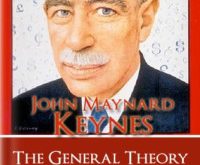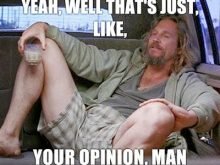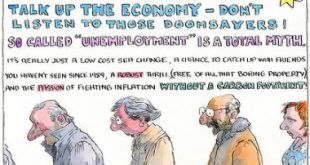Rethinking philosophy of economics In this book Gustavo Marqués, one of our discipline’s most dexterous and acute minds, calmly investigates in depth economics’ most persistent methodological enigmas. Chapter Three alone is sufficient reason for owning this book.Edward Fullbrook, University of the West of England Is ‘mainstream philosophy of economics’ only about models and imaginary worlds created to represent economic theories? Marqués questions this...
Read More »Fact and fiction in economics
Fact and fiction in economics The idea that we can safely neglect the aggregate demand function is fundamental to [classical] economics … But although the doctrine itself has remained unquestioned by orthodox economists up to a late date, its signal failure for purposes of scientific prediction has greatly impaired, in the course of time, the prestige of its practitioners.For professional economists, after Malthus, were apparently unmoved by the lack of...
Read More »The main problem with mainstream economics
The main problem with mainstream economics Many economists have over time tried to diagnose what’s the problem behind the ‘intellectual poverty’ that characterizes modern mainstream economics. Rationality postulates, rational expectations, market fundamentalism, general equilibrium, atomism, over-mathematisation are some of the things one have been pointing at. But although these assumptions/axioms/practices are deeply problematic, they are mainly...
Read More »Economics departments need to install smoke detectors …
Economics departments need to install smoke detectors … Balliol Croft, Cambridge 27. ii. 06 My dear Bowley … I know I had a growing feeling in the later years of my work at the subject that a good mathematical theorem dealing with economic hypotheses was very unlikely to be good economics: and I went more and more on the rules — (1) Use mathematics as a short-hand language, rather than as an engine of inquiry. (2) Keep to them till you have done. (3)...
Read More »Olivier Blanchard’s second thoughts
Olivier Blanchard’s second thoughts Olivier Blanchard has had some Further Thoughts on DSGE Models and now comes up with the view that Macroeconomics is about general equilibrium … The specific role of DSGEs in the panoply of general equilibrium models is to provide a basic macroeconomic Meccano set, i.e. a formal, analytical platform for discussion and integration of new elements … The only way in which DSGEs can play this role is if they are built on...
Read More »Economics — a contested space
Economics — a contested space Neoliberals try to close down the space of political debate and social possibility by excluding all except neoliberal ideas. The tragedy of the past 40 years is they have been succeeding. In the academy there is a neoclassical monopoly, and in politics Labor and Social Democratic parties have been captured by the Trojan horse of the Third Way, creating a neoliberal political monopoly. Reversing this state of affairs is a...
Read More »My favourite girls (personal)
My favourite girls (personal) Hedda (3), Linnea (17), and Tora (23)
Read More »Why economists are useless at forecasting
Why economists are useless at forecasting We forget – or willfully ignore – that our models are simplifications of the world … One of the pervasive risks that we face in the information age … is that even if the amount of knowledge in the world is increasing, the gap between what we know and what we think we know may be widening. This syndrome is often associated with very precise-seeming predictions that are not at all accurate … This is like claiming you...
Read More »The wisdom of crowds
The wisdom of crowds [embedded content]
Read More »‘Rational expectations’ is wrong
‘Rational expectations’ is wrong Lynn Parramore: It seems obvious that both fundamentals and psychology matter. Why haven’t economists developed an approach to modeling stock-price movements that incorporates both? Roman Frydman: It took a while to realize that the reason is relatively straightforward. Economists have relied on models that assume away unforeseeable change. As different as they are, rational expectations and behavioral-finance models...
Read More » Lars P. Syll
Lars P. Syll









